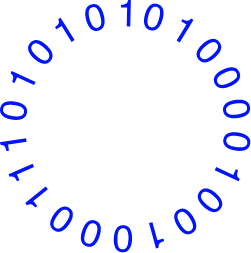For original article, click here.
It used to just be a term exclusively reserved for technology correspondents, but now barely a day goes by without artificial intelligence (AI) making the headlines in some way, or another.
Last week, a statement published by the Center for AI Safety warned it could lead to the extinction of humanity.
Less dramatically, a recent analysis of public company earnings calls by the emissions data platform Minimum found discussions around AI have skyrocketed.
According to the study, mentions of ‘generative AI’ skyrocketed by 1,584% between Q3 and Q4 2022.
The study also found AI is mentioned more frequently than key ESG terms such as ‘climate change’ and ‘greenhouse gases’ across the past four quarters of investor calls.
Minimum co-founder Freddie Evans said in an email that that sustainability and AI are now two of the most pressing topics for business leaders today.
With this in mind, what are the key sustainability sectors in which AI can help create a greener and cleaner tomorrow?
Arup’s digital services leader, Will Cavendish said it wants to continue to develop and use AI, while at the same time being conscious of the risks, which need to be addressed properly.
Cavendish added whenever a new technology is developed that is clearly both beneficial and safe, there is an ethic to use it for good.
In particular, he said AI has particularly powerful applications in the built environment.
He added it can handle some of the major challenges caused by population growth, extreme weather events and the need to build more resilient and inclusive urban spaces.
“A lot of this has been driven by the world of transport,” he told Forbes in an interview.
“Electric, connected and autonomous vehicles intrinsically have a digital mesh around them, and you simply cannot operate that digital mesh without AI, because if you have a human at the centre of it, it will just go wrong.”
Cavendish added that energy grids are moving to AI and machine learning to manage supply and demand, as they move to low-carbon systems.
“It’s going to be a world of much smaller-scale renewable generation that goes on and off,” he said.
“It’s going to have a very different grid pattern, and operators will need to be able to make sense of that and optimise it.”
He added there is also a growing demand for AI-enabled traffic management systems, which can start predicting road closures in the event of accident and notify the emergency services when they are needed.
Cavendish added there are also applications in making urban cities more resilient to extreme weather events.
He said Arup has done a lot of work in places like Shanghai to optimise the number of green spaces and help it absorb water, by using AI to calculate where best to deploy nature-based solutions.
And in Albania, Arup is also currently designing an orbital forest around the city of Tirana to help cool it down.
“This is absolutely going to be the future of building design and over time, it will come in more widely to the design of districts and cities,” said Cavendish.
“AI can really augment what humans do and create sort of better solutions than they were able to previously able to.”
Another sustainability sector, which could benefit is waste management.
JD Ambati, founder and CEO of EverestLabs said the sector is an “extraordinarily perfect target to leverage the power of AI”.
“AI can enable complex industrial systems to understand data at a finite level on a minute-by-minute basis,” Ambati told Forbes in an interview.
“If you’re wondering ‘should I deploy AI systems to manage my plant operations and increase recovery?’ You have to. There’s nothing to fear. It will only help you it won’t destroy anything.
EverestLabs has developed an operating system that captures an immense amount of data for accurate sustainability reporting.
According to the company, it could save facilities upwards of 60% in costs and increasing the amount of recyclables captured before going to landfill by up to 40%.
Ambati said as long as plant operators know how to look at the data and take advantage of it, AI operating systems offer a “stunning return on investment”.
He pointed to the example of aluminium drinks cans and said while they are readily recyclable, $5 billion worth still end up in landfill every single year.
He said AI systems can help recover significantly more aluminium in waste management plants, as well as recover other materials, like plastics and therefore reduce the need to produce new “virgin” materials.
